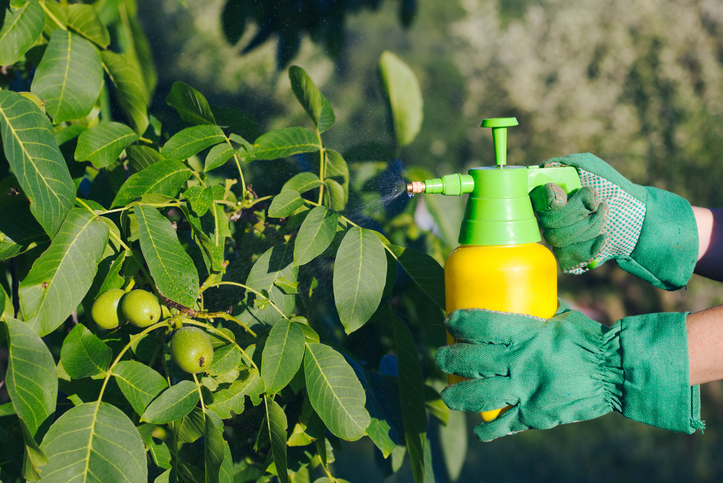US biotech startup Vestaron, which is developing biological alternatives to chemical-based crop controls using peptides, has raised $82 million in its Series C funding round.
- Private investment office Ordway Selections and Cavallo Ventures, the VC arm of agribusiness major Wilbur-Ellis, co-led the round.
- Other new investors to come on board included Argonautic Ventures, Endeavor8, and Fortistar.
- Vestaron’s existing backers iSelect, Northpond Ventures, Novo Holdings, Sygnenta Group Ventures, and CGC Ventures — the VC arm of Continental Grain — also participated in the round.
- Its flagship product, Spear, is a peptide-based insecticide that can be used to target multiple pest species. Growers can add it to their tank mix and apply it to their plants in the same way as conventional chemistries.
The Raleigh, North Carolina-based startup will use the funding for further development of Spear, widening its use in the row crops market and developing “contact-kill applications for soft-bodied pests like thrips, aphids, whiteflies, and mites,” CEO Anna Rath tells AFN.
It will also invest in its product pipeline with the aim of bringing its new, under-development insecticidal active ingredients Basin and Dictate to market in 2023 and 2024, respectively.
“We have additional insecticide candidates at earlier stages in our pipeline, as well as our first fungicidal candidates,” Rath adds.
Why it matters:
Peptides are small, naturally-occurring proteins comprising short chains of between two to 50 amino acids. After being applied to crops, peptides degrade into singular amino acids, which are generally harmless to the surrounding environment, other wildlife, and humans.
This contrasts with the small chemical molecules that feature in conventional crop protection products. These can contaminate the environment as runoff when applied overzealously, presenting a hazard for other organisms. What’s more is that many pests have built up resistance to them after decades of usage.
“These chemistries are increasingly being banned, or at least restricted in their use. Many of the remaining chemistries have been in use for so long that they have significant resistance issues, and increased regulatory scrutiny has massively slowed the pace of new product introduction,” Rath says.
“Peptides provide every bit the same level of efficacy as traditional crop protection chemistries, but with the safety and environmental profile of a biologic molecule.”
Micropep’s small peptide ag inputs get $10m from FMC, others
How it works:
According to Rath, Vestaron’s work with peptides covers three key areas:
- Optimization: making changes to the amino acid sequence of a selected peptide to improve factors such as manufacturing yield, stability, potency, and the variety of insects and other pests it can act against.
- Manufacturing involving “both the optimization of our proprietary yeast strain for the production of each peptide, as well optimization of the fermentation process itself,” Rath says.
- Delivery: “Because peptides are larger molecules than traditional chemistries, they do not move through the insect as well on their own,” she explains. “As a result, we have learned to pair them with gut disruptors that will basically create ulcers in the insect gut and thereby a path for our peptides to reach their target receptors.”
Like several other insecticides, Spear works at the insect’s nicotinic acetylcholine receptor. However, unlike widely used but potentially harmful neonicotinoids, or Spinosad — another bio-based control — Spear targets a separate, larger binding site, overcoming the problem of cross-resistance with both.
Traction:
- 2022 is Spear’s third year in the market
- Used on tree nuts, pome fruit, stone fruit, brassicas, maize, leafy greens, hops, hemp, and cranberries
- 5% market share in California-grown pistachios in 2021
- National distribution partners include Helena, Nutrien, and Wilbur-Ellis
- Recently launched in Mexico and submitted for regulatory registration in Canada and the EU
What they say:
“Our biggest challenge is the 30-plus-year history in crop protection of most biologics not working as well as traditional chemistries. This has created a level of skepticism on the part of growers [that] there really can be products that combine the efficacy of traditional chemistries with the safety and environmental profile of a biologic,” Rath says.
“The only way to overcome this was just to build the field data package and get into demonstration trials. The good news is, as growers and the channel increasingly understand what peptides can do, each new peptide launch should get easier and easier.”





